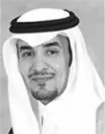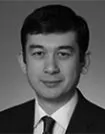Based on a variety of export-oriented industries including oil and gas, metals and mining, logistics, agrochemicals and food and beverages, the Kingdom of Saudi Arabia has the largest industrial output in the MENA region. Given the Kingdom's substantial hydrocarbons resources (including gases and liquids associated with crude oil and methane production) and low extraction costs, this industrial output has historically been dominated by oil and gas related industries (e.g. oil production and petrochemicals).
The global oil price collapse has prompted the Government of the Kingdom to reconsider the contribution of its relatively under-performing non-oil and gas related industries to the Kingdom's economy. These non-oil and gas related industries have been identified in the Kingdom's "Saudi Vision 2030" as a key focus for further development in order to aid in reducing the Kingdom's traditional dependence on hydrocarbon revenues and create private sector employment opportunities for Saudi nationals.
This article provides an overview of the impact that Saudi Vision 2030 is likely to have on the Kingdom's industrial sector and profiles: (a) the National Industrial Cluster Development Program ("NICDP"), the government agency established to support industrial investment in the Kingdom; (b) the "Industrial Clusters" which NICDP is developing in the Kingdom; and (c) some of the key players in the Kingdom's industrial sector, including the Ministry of Energy, Mineral Resources & Industry ("MEIM"), Saudi Arabian Industrial Investments Company ("SAIIC"), Saudi Arabia Basic Industries Corporation ("SABIC"), Royal Commission for Jubail and Yanbu ("RCJY") and Saudi Industrial Property Authority ("MODON"). We also set out a brief summary of some of the significant industrial projects and transactions that Shearman & Sterling LLP has advised on in the Kingdom.
IMPACT OF SAUDI VISION 2030
Targets
Under the "National Transformation Program 2020," the program which aims to implement the first phase of Saudi Vision 2030, the Kingdom aims to create more than 450,000 jobs in the private sector and localise more than SAR270 billion of content by 2020. In addition, there are a number of other targets to be met by 2020 that will only be achieved through the development of the Kingdom's non-oil and gas related industries, such as increasing:
- annual non-oil commodity exports from SAR185 billion to SAR330 billion;
- the mining sector's contribution to GDP from SAR64 billion to SAR97 billion;
- the volume of private sector investments in high potential but less developed regions from zero to SAR28
- billion;
- local pharmaceutical manufacturing percentage of total market value from 20% to 40%;
- the number of value-added basic manufacturing and transformation products from 432 to 516;
- the total industrial production at the industrial cities of Jubail, Yanbu, Ras Al-Khair and Jazan from 252 million tons to 309 million tons;
- the local content in the industrial and service value chains and localisation of expertise in the renewable
- energy sector and the atomic energy sector; and
- the number of: (a) establishments created to develop local content from 8 to 17; (b) technology companies emerging from universities through the "Innovative Companies Program" to 800; (c) localised and developed technologies in targeted sectors to 125; and (d) patents issued by the Kingdom from 700 to 5,000.
Notable Initiatives
Notable initiatives to be taken by Government bodies to achieve the aforementioned targets include:
- construction of production centres for manufacturing and light industries in Raas Abu-Gamis, Bani-Tamim and Debaa to benefit from the local natural resources that are available (MEIM);
- localisation of the pharmaceutical industry (Ministry of Health);
- development of a local military industry so that 50% of defence spending will be locally sourced by 2030 (Ministry of Defence)1;
- localisation and development of new infrastructure in Yanbu Industrial City (including the localisation of the renewable energy industry and rubber industry, spare parts for basic industries and desalination and establishment of industrial gases and steam networks), Jubail Industrial City, Ras Al-Khair Industrial City and Jazan Economic City (RCJY);
- development of an industrial cluster and expansion of the Saudi Aramco refinery (Oil-to-Chemicals) in Yanbu(RCJY);
- development of value-added basic and transformational industries in Jubail Industrial City and Ras Al-Khair
- Industrial City (RCJY);
- development of housing in the four industrial cities (RCJY);
- development of a mineral industries port in Yanbu Industrial City (RCJY);
- development of a multi-modal logistics hub in Jubail Industrial City (RCJY);
- localisation of small nuclear reactors and industry (King Abdullah City for Atomic and Renewable Energy
- ("KA CARE"));
- localisation of nuclear fuel cycle in uranium production to achieve investment returns (KA CARE);
- localisation of renewable energy technology to support the Kingdom's power and water desalination sectors
- (KA CARE); and
- localisation and transfer of technology in building and construction, mining and advanced materials, health, energy, information and communication, water, oil and gas and transport and logistics (King Abdulaziz City for Science and Technology ("KACST")).
NICDP
NICDP (http://www.ic.gov.sa) is a Government agency, under the supervision of the Ministry of Commerce and Investment ("MOCI") and MEIM, with the broad objective of supporting industrial investment in the Kingdom. NICDP's more specific mission is to grow and diversify the Kingdom's economy by developing targeted "Industrial Clusters" that leverage the Kingdom's resources (i.e. the Kingdom's natural advantages of abundant, competitively produced energy and raw materials) and through this, they are able to promote economic diversification, substitution of imports with locally produced or manufactured products and increased exports. The Industrial Clusters are Minerals & Metal Processing, Automotive, Plastics & Packaging and Pharma & Biotech2
As part of its mandate, NICDP is able to facilitate applications by investors in Industrial Clusters to Government bodies that include the Saudi Arabian General Investment Authority ("SAGIA"), MOCI, Saudi Industrial Development Fund ("SIDF"), Public Investment Fund ("PIF"),3 MODON, RCJY and Human Resources Development Fund ("HRDF").
INDUSTRIAL CLUSTERS
Minerals and Metal Processing Cluster
The Kingdom's geology gives it an abundance of natural resources and raw materials. To date, over 48 minerals have been identified in the Kingdom, including feldspar and nepheline syenite; garnet; gold; zinc; granite; graphite; gypsum; tantalum; high grade silica sand; kaolinitic clays; limestone; magnesium; marble; olivine; pozzolan; rock wool; silver; and zeolites. The Kingdom has identified 1,273 sites of precious metals and 1,171 sites of non-precious metals.
The Kingdom's abundance of natural resources and raw materials creates significant opportunities for industry as there is a strong market for metals and metal-based products both locally and abroad—e.g. the demand for steel and aluminium in the MENA region's construction sector, as well as the local Automotive Cluster and in aerospace. According to NICDP's website, the priority developments within the Minerals and Metal Processing
Cluster are:
- a flat-rolled aluminium mill to produce automotive, construction and other sheet panels;
- a multi-purpose aluminium rolling mill for products such as wire, rod, foil and packaging;
- an aluminium foundry to produce power train, wheel and other castings;
- mini mills capable of producing high-quality steel sheets for the automotive, marine, household appliance and other sectors;
- plants to produce speciality steels, for example for tools, rod, wire and bearings;
- an iron/steel foundry to produce pumps, valves and other castings;
- copper processing facilities to produce copper and alloy rod, cable, tubing, plate, pipe and sheet;
- metal processing facilities for forging, machining, stamping, heat treating and plating;
- brass alloy production; and
- magnesium and zinc powder production.
Automotive Cluster
The Kingdom has a number of key advantages that makes it well-suited to automotive manufacturing and the development of a local automotive industry. Automotive manufacturing is heavily dependent on metals like steel and aluminium, high-grade plastics, glass, sufficient land area to build integrated manufacturing facilities and given the quantities consumed in manufacturing processes, competitively priced utilities like electricity, steam and water, as well as oils and lubricants. In addition to being one of the largest car markets in the Middle East, the Kingdom benefits from direct shipping routes to the mass automotive markets of Asia and the subcontinent (and close proximity by air).
We understand that the Automotive Cluster will see the development of a local automotive industry covering all aspects of the automotive supply chain, including the production of "carbon black" and "synthetic rubber" (i.e. for tyres), carbon fibre, oil filters, circuit boards, batteries, cabling, sensors, adhesives, paints, composites, trim and seats.
Several major projects are already being undertaken, such as the joint development by Isuzu Motors and MODON of a manufacturing facility in Dammam to build trucks and cars with almost half of its production to be exported and the establishment of a greenfield manufacturing project by Jaguar Land Rover, who was advised by Shearman & Sterling LLP.
According to NICDP's website, the priority developments within the Automotive Cluster are:
- vehicle assembly projects, with the aim of producing 600,000 vehicles a year by 2025;
- tyre plants for the local market and export markets (totalling 8 million to 10 million tyres a year);
- power train projects for the local market and export markets;
- major "tier 1" suppliers (i.e. systems and modules);
- small and medium-sized "tier 2" suppliers (i.e. sub-systems, sub-assemblies and components);
- smaller "tier N" suppliers (i.e. standard parts and materials); and
- industry-related services such as R&D and training.
The Automotive Cluster is supported by a number of Government entities, including MODON, King Saud University and KACST.
Plastics and Packaging Cluster
In addition to the competitive advantages mentioned in the context of the Automotive Cluster, the Kingdom is rich in oil and gas, which are the primary feedstocks used in the manufacturing of petrochemical products.
Plastics and packaging are a type of petrochemical product. Taking these factors together, the plastics and packaging sector is seen as having great potential for further growth and development in terms of production volumes, product types, technological sophistication and product markets.
According to NICDP's website, the priorities of the Plastics and Packaging Cluster are to:
- make the Kingdom the service hub for consumer packaged goods companies to export plastics and packaging worldwide;
- encourage and support further local and foreign investment in the sector, including creating and sustaining
- jobs; and reduce imports and increase exports.
The Plastics and Packaging Cluster is also supported by industrial and academic entities, including the National Industrialisation Company ("TASNEE") (including through the TASNEE Plastics Research Center in Jubail), SABIC (including through SABIC's Plastics Application Development Center in Riyadh), the Higher Institute for Plastic Fabrication in Riyadh, the High Institute for Elastomer Industries in Yanbu and King Saud University.
Pharma and Biotech Cluster
The Kingdom's healthcare market is the largest in the GCC and is set to grow by 69% from US$16 billion in 2015 to US$27 billion by 2020.4 Traditionally, the healthcare market has depended heavily on Government expenditure and imports, including in respect of drug medications. The Pharma and Biotech Cluster, which is supported by the Ministry of Health and other Government stakeholder entities, is aiming to:
- develop a local pharmaceutical industry in the Kingdom, through attracting elite and innovative foreign direct investments that will facilitate transfer of the latest technologies;
- reduce dependence on imports and become a net exporter;
- create new job opportunities for the local population; and
- position the Kingdom as a major contributor to innovation in pharmaceutical industries.
According to NICDP's website, there are currently more than 40 business opportunities in the Kingdom in the healthcare sector spread over pharmaceutical investments, R&D, vaccination and automating the health care systems, totaling nearly US$20 billion.
KEY PLAYERS IN THE INDUSTRIAL SECTOR
MEIM
MEIM (http://www.meim.gov.sa/arabic/pages/default.aspx), previously the Ministry of Petroleum and Mineral Resources, is charged with the supervision of the oil, gas and petrochemicals, electricity and industrial sectors in the Kingdom. MEIM is also in charge of research and development—it has three training centers dedicated to R&D and exploration of innovations and techniques relevant to the oil & gas and energy sectors.
The industrial sector was previously overseen by MOCI. Following the Government's restructuring initiatives, the oversight of the industrial sector was transferred to MEIM on 8 May 2016. MEIM is now also responsible for reviewing and approving industrial permit applications and related matters.
Khalid Al-Falih is the Minister of Energy, Industry and Mineral Resources and was previously the Minister for Health. The minister is also the Chairman of the Board of Saudi Aramco, a position which he has held since 2015. The appointment of Mr Al-Falih as the Minister of Energy, Industry and Mineral Resources reinforces the importance of MEIM to the future economic success of the Kingdom given that:
- in addition to petroleum and mineral resources, the responsibility for: (a) the power sector (and the control of Saudi Electricity Company) will now rest with MEIM, which will help to bring together the various stakeholders in the power sector under the one Ministerial "roof;" and (b) the industrial sector will now rest with MEIM instead of the MOCI; and
- Mr. Al-Falih will continue in his role as chairman of Saudi Aramco and holds one of the key positions in the implementation of Saudi Vision 2030.
SAIIC
SAIIC was established in 2014 by PIF (50% shareholder), Saudi Aramco and SABIC (each 25% shareholders). SAIIC is seen as a key component of the Kingdom's vision to establish a globally competitive industrial sector. SAIIC's role in the Kingdom's further industrialisation is to establish profitable stand-alone entities that may not be capable of being developed by the private sector alone, including through attracting new technologies.
These stand-alone entities are usually owned by SAIIC together with local or foreign partners that are global industry leaders. SAIIC has a particular interest in downstream development in strategically important industries.
In May this year, General Electric agreed with SAIIC to participate in investments of up to US$3 billion to expand local manufacturing and innovation in water, energy, aviation, technology and other sectors starting from this year, evidencing the Kingdom's commitment to developing local industry through joint ventures with foreign companies, facilitating direct foreign investment and increasing the participation of the private sector in the Kingdom's economy.
SABIC
SABIC is a Tadawul-listed, 70% Government-owned, diversified manufacturing company established in 1976 to convert oil by-products into value-added chemicals, polymers and fertilisers. SABIC's main operations, which are worldwide, fall within strategic business units covering Petrochemicals,5 Specialties, Agri-Nutrients and Metals. SABIC was the world's fourth largest chemical producer in 2013.6 SABIC is one of the world's largest producers of global ethylene glycol, polyethylene, polyolefin, polypropylene, MTBE, granular urea, polycarbonate, polyphenylene and polyether imide. The Saudi Iron and Steel Company ("HADEED"), based in Jubail, is one of the world's largest fully-integrated steel producers and a wholly-owned subsidiary of SABIC, which SABIC plans to turn into an independent company with separate management and responsibility for the marketing of its products.7
Some of SABIC's notable transactions include:
- the acquisition of General Electric's Plastics division, in a US$11.6 billion cash deal, including US$8.7 billion of its liabilities;8 and
- over 20 chemical projects in the Kingdom owned in joint venture with international partners like Mitsubishi Corporation, Exxon Mobil, SINOPEC and Royal Dutch Shell or part publicly listed.9
SABIC has a number of potential projects at the feasibility study stage, including petrochemicals projects in China and the United States.10 SABIC also recently signed a heads of agreement with Saudi Aramco to conduct a feasibility study by early 2017 for the development of an oil-to-chemicals project in Yanbu (at a reported cost in the vicinity of US$30 billion) to process crude oil directly into chemicals, cutting out the costly intermediate link in the production of plastics.11
RCJY
The RCJY is a Government organisation established in 1975 and governed by a Board of Directors chaired by Prince Saud bin Abdullah bin Thunayan, who reports to the Council of Ministers of the Government. The RCJY was originally established to plan, promote, develop and manage petrochemicals and energy intensive industrial cities through partnerships with investors and other stakeholders. The industrial cities within the RCJY's jurisdiction are Jubail, Yanbu, Ras Al-Khair and Jazan. Shearman & Sterling LLP advised the RCJY in connection with the establishment of the Jubail and Yanbu Industrial Cities.
In connection with Saudi Vision 2030, the RCJY will spend over SAR41.5 billion on new initiatives over the next five fiscal years in the four industrial cities with the target of increasing the size of the private sector's new
investments in these industrial cities from SAR681 billion to SAR1.065 trillion.
MODON
MODON is a Government authority created by a Ministerial Resolution in 2001 and supervised by a Board of Directors chaired by Khalid Al-Falih, the Minister of Energy, Industry and Mineral Resources. MODON is responsible for the development, promotion and regulation of industrial cities and technology zones in the Kingdom. It is part of the initiative to encourage the private sector to become more involved in the development, operation and maintenance of such cities. MODON oversees 29 industrial cities with a total area of approximately 150 million square meters. At the moment, investments in MODON's industrial cities are estimated to exceed SAR250 billion and over 350,000 workers are employed by businesses located there. MODON also incentivises factories and plants to establish their operations within the less popular industrial cities. Incentives include low lease rates for industrial properties.
OUR SELECTED EXPERIENCE IN THE KINGDOM'S INDUSTRIAL SECTOR
- Sadara Integrated Chemicals Project: We acted for The Dow Chemical Company on all aspects of the Sadara Integrated Chemicals Project, a US$20 billion joint venture between Saudi Aramco and The Dow Chemical Company, which is the world's largest chemical complex ever built in a single phase, with 26 integrated world-scale manufacturing plants that produce more than three million tons of chemical products (including plastics) every year.
- Establishment of Jubail and Yanbu Industrial Cities: We acted for the RCJY on all aspects of the establishment of these two industrial cities in the Kingdom.
- Jaguar Land Rover Saudi Manufacturing Plant: We acted for Jaguar Land Rover in relation to a proposed US$5 billion greenfield manufacturing project in the Kingdom.
- GE Plastics Acquisition: We acted for SABIC on its US$11.6 billion acquisition and related financing of GE Plastics, one of the largest ever purchases by a Middle Eastern company of US assets.
- New Manufacturing Facility: We are acting for a multinational conglomerate on establishing a multi-million dollar manufacturing facility in the Kingdom, alongside SAIIC and Saudi Aramco.
- The Dow Chemical Company - TASNEE Joint Venture: We are acting for The Dow Chemical Company on the potential development and financing of a greenfield plant for the production of anti-scalant and coatings polymers in Jubail.
- Jubail IWPP: We acted for Marafiq, the utility company for Jubail and Yanbu, on the development of the landmark US$3 billion Jubail IWPP, one of the largest facilities of its kind in the world with an output of 2,745 MW and 800,000m3 of water per day. Jubail IWPP serves domestic and industrial consumers in Jubail and the wider region and facilitates further development of Jubail industrial City.
- TASNEE Acquisition of Clariant Masterbatches: We acted for TASNEE on its acquisition of a minority interest in Clariant Masterbatches (Saudi Arabia) Limited, a producer of colour and additive concentrates.
- Saudi Seamless Pipes Factory Acquisition: We acted for Vallourec & Mannesman Inc. on its acquisition of Saudi Seamless Pipes Factory, a Saudi industrial company owned by Al Zamil group.
- Takween Advanced Industries Company: We acted for Takween Advanced Industries Company, a leading producer of plastic packaging solutions, polyethylene terephthalate preforms and non-woven fabrics materials, on its proposed rights issue on the Saudi Stock Exchange.
Footnotes
1 According to Saudi Deputy Crown Prince and Minister of Defense Mohammed bin Salman Abdulaziz Al Saud, the Kingdom will launch a Government-owned military holding company by the first quarter of 2017 to oversee the development of the local military industry.
2 We note that on NICDP's website, there are some references to Solar Energy and Home Appliances clusters but these appear to have been superseded by the four clusters mentioned above. In the case of the Solar Energy cluster, we suspect that one reason for this is that Saudi Vision 2030 and the National Transformation Program 2020 seem to have confirmed that KA CARE will be responsible for developing a local renewable energy industry.
3 PIF, in particular, would be of interest to investors as it has a mandate to invest through equity, loans or guarantees and through allocations of public funds to specific projects or transactions that are strategically significant to the economy of the Kingdom, like the development of the Industrial Clusters.
4 Source: "GCC Healthcare Industry Report" by Alpen Capital dated February 2016.
5 This strategic business unit is the result of the consolidation of the former Chemicals and Polymers strategic business units (Source: MEED, 20 October 2016).
6 Source: Chemical Engineering News.
7 Source: MEED, 20 October 2016.
8 Shearman & Sterling LLP advised SABIC on this transaction, which is one of the largest ever purchases by a Middle Eastern company of US assets.
9 Source: SABIC Annual Report 2015.
10 Source: MEED, 20 October 2016.
11 Source: Bloomberg, 28 June 2016.
The content of this article is intended to provide a general guide to the subject matter. Specialist advice should be sought about your specific circumstances.






